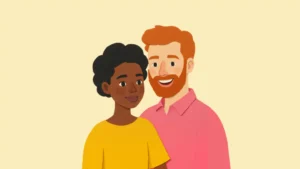What is Trauma?
Trauma is like a shadow—it can follow you through life, shaping how you see yourself and the world around you. Whether it’s a single event, ongoing experiences, or the weight of generational or interfaith trauma, its impact can feel overwhelming. You might find yourself stuck in patterns you don’t understand, feeling disconnected, or struggling to feel safe.
How and Where Does It Show Up?
Trauma can show up in many ways: anxiety, flashbacks, difficulty trusting others, or even physical symptoms like fatigue or pain. For some, it’s a constant sense of unease; for others, it’s feeling numb or detached. Generational or interfaith trauma might manifest as unresolved family conflicts, identity struggles, or a sense of carrying burdens that aren’t yours to bear.
What Are Our Approaches? How Can Therapy Help?
Talking Distance offers a compassionate space to process trauma and begin healing. Using trauma-informed approaches like trauma focused practices, somatic therapy, and narrative work, we help you make sense of your experiences, release what no longer serves you, and rebuild a sense of safety and connection. Healing is possible, and you don’t have to do it alone.
FAQs: About Trauma & Therapy
Only if you’re ready. Therapy focuses on your healing and can include tools to manage symptoms without revisiting painful memories.
Yes. By understanding and addressing these patterns, you can break the cycle and create a new legacy for yourself and future generations.
Trauma isn’t always obvious. Therapy can help you explore underlying patterns and find ways to move forward.
![Logo [with tagline]-38](https://talkingdistance.com/wp-content/uploads/2025/03/Logo-with-tagline-38-300x138.webp)










